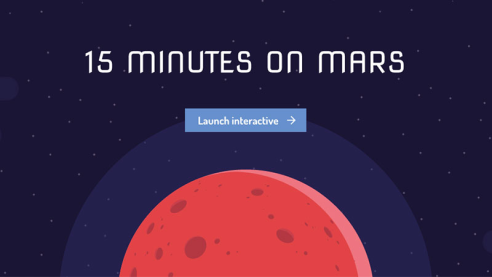 free course icon
level 3: advanced icon
free course icon
level 3: advanced icon
Science, Maths & Technology
Introduction to quantum computing
Quantum computing is a developing field with enormous potential societal and economic impact. In the future, quantum computers will enable us to solve a range of complex problems that are currently intractable, potentially revolutionising key sectors including medicine, finance and the pharmaceutical industry. In this free course you will learn ...
 article icon
article icon
Education & Development
Building Science and Technology Diplomacy Skills through CARE–KNOW–DO
Science and technology diplomacy are essential skills for navigating a complex, interconnected world. This article explores how the CARE–KNOW–DO framework helps educators and young people develop the values, knowledge, and actions needed to shape global solutions and tackle pressing challenges, from climate change to AI governance.
 article icon
article icon
Science, Maths & Technology
Dive into World Ocean Day with OpenLearn
Celebrate World Ocean Day with our collection of free educational resources about Earth’s oceans - and oceans beyond.
 article icon
article icon
Health, Sports & Psychology
Drivers and hand-held mobile phones: extending the ban won’t solve the problem – here’s why
Dr Gemma Briggs and Dr Helen Wells look at the changes to the law for using a mobile phone whilst driving and why attitudes towards this activity need to change.
 article icon
article icon
Health, Sports & Psychology
Think you’re better at driving than most? How psychological biases are keeping our roads unsafe
Overconfidence in your driving ability can be highly dangerous. Dr Gemma Briggs explains how can we change driver behaviour.
 video icon
video icon
Science, Maths & Technology
So, you want to work in the video gaming industry
Have you ever been told that you spend so much time playing computer games, you should get paid to do it? Well, maybe you should consider a career in designing them!
 article icon
article icon
Science, Maths & Technology
Solving the perplexing mathematicians' problem of the spectre
In 2023, a UK maths enthusiast called David Smith discovered a shape that had one very specialproperty.Using copies of this shape, nicknamed “the spectre,” one can cover a flat surface forever-without the pattern repeating itself. This special property is called aperiodicity, and David’s discovery solved a problem that had been perplexing ...
 article icon
article icon
Digital & Computing
In-car technology: are we being sold a false sense of security?
Our new cars come equipped with technology to read out text messages and let us use voice commands to make phone calls. Allocating attention to other tasks, can lead to our driving performance suffering and putting lives at risk.
 activity icon
activity icon
Science, Maths & Technology
15 minutes on Mars
Have you ever looked up into the night sky at the red planet and wanted to know more? Now here’s your chance to explore Mars.
 free course icon
level 2: intermediate icon
free course icon
level 2: intermediate icon
Science, Maths & Technology
Electromagnetism: testing Coulomb’s law
This free course explores Coulomb’s law, the physical law that governs the force between electric charges, and shows how it can be verified experimentally. As a prerequisite you will need some mathematical knowledge of vectors. This free course is an adapted extract from the Open University course SM381 Electromagnetism.
 activity icon
activity icon
Society, Politics & Law
Crime scene officer
Put yourself in a crime scene officer's shoes and try to solve a suspected murder when time and resources are tight. Can you link the suspects to the forensic evidence?
 free course icon
level 2: intermediate icon
free course icon
level 2: intermediate icon
Science, Maths & Technology
Transport and Sustainability
This free course, Transport and sustainability, explores the issues around sustainable transport and how the role of technology and society can interact to lower the overall impact of transport.